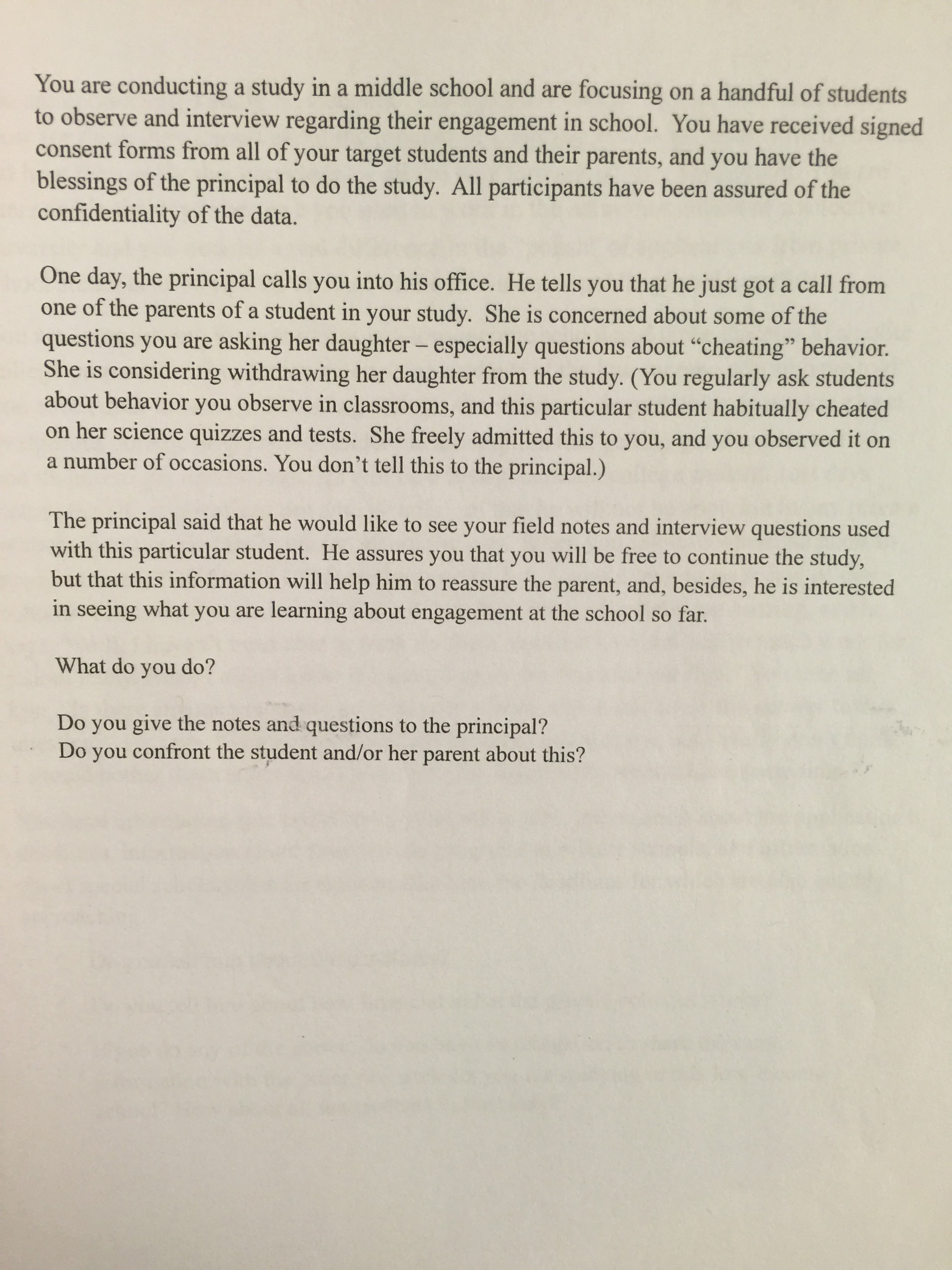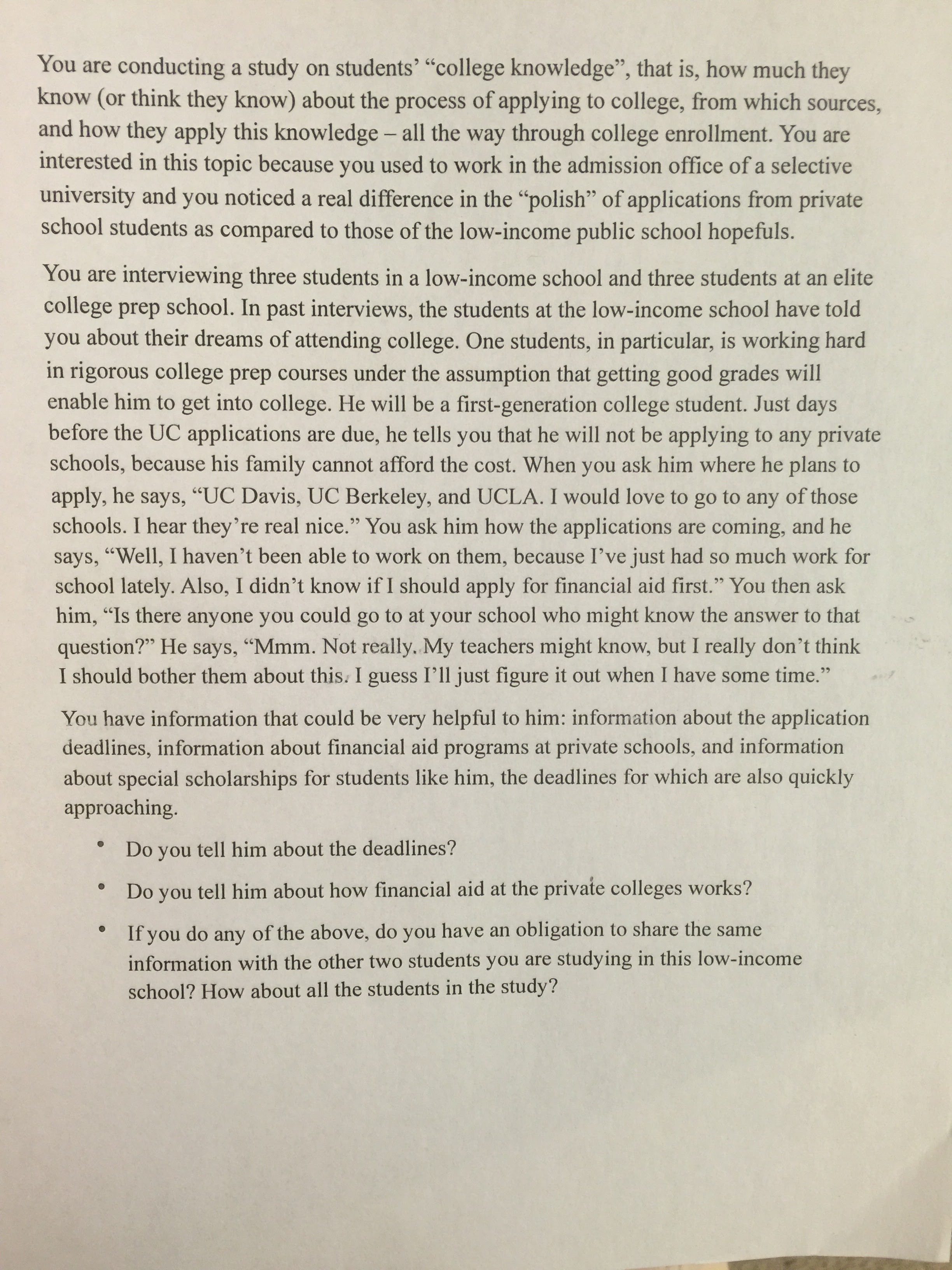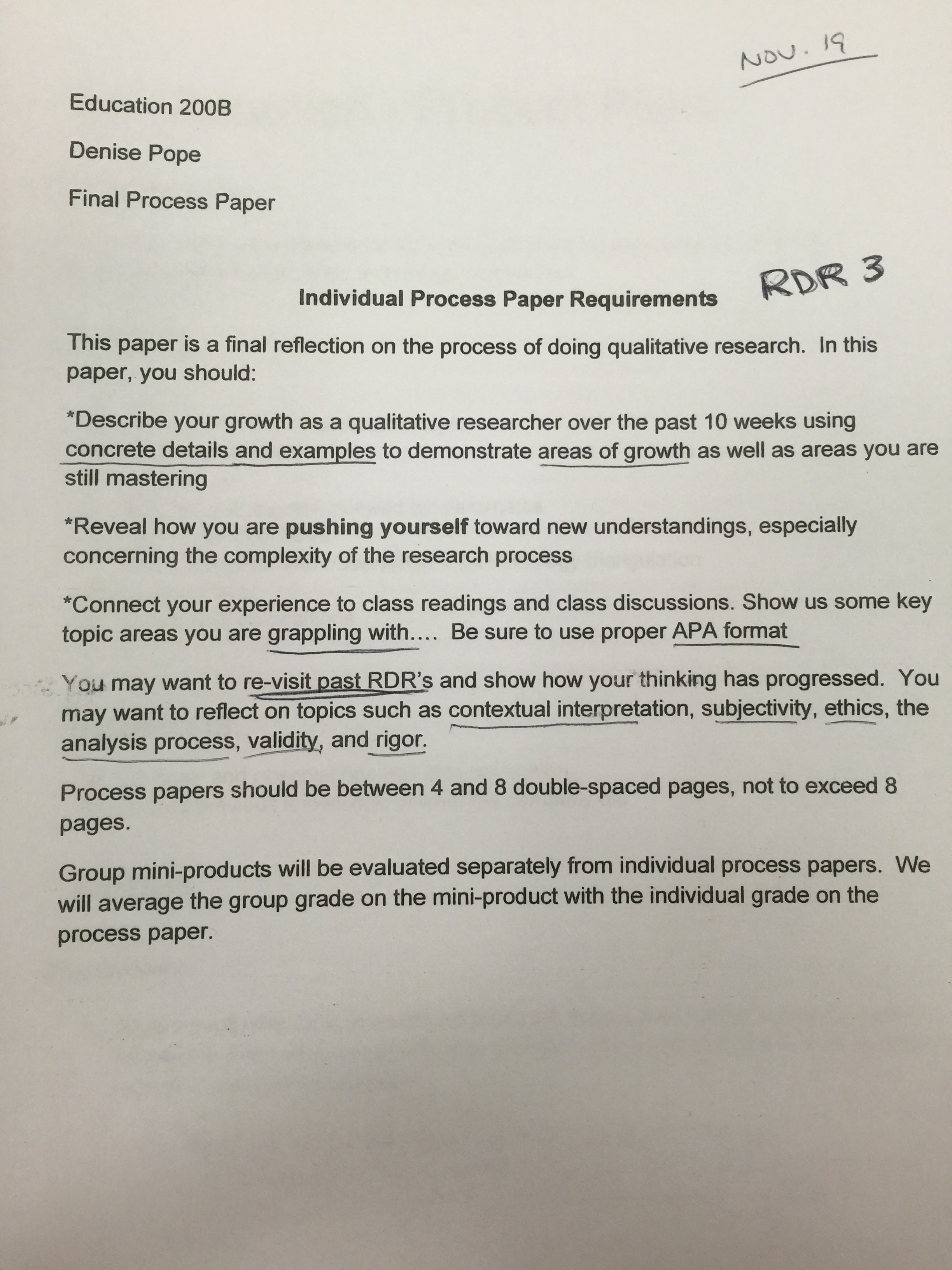Talked about the Horizon Reports in the ‘traditional’ group discussion separated by report read then whole class shout out sharing of findings.
We then went over the final presentation videos and some other more administrative stuff.
Educational Content Producer
Talked about the Horizon Reports in the ‘traditional’ group discussion separated by report read then whole class shout out sharing of findings.
We then went over the final presentation videos and some other more administrative stuff.
Did a Fishbowl group activity where we were presented with two ethical dilemmas.


We also talked about our final papers as well as our propositions. Got our feedback from Denise the day after.

Reading Assignment
Notes
“You Never Know When You Might Want to Be a Redhead in Belize”
“Narrative Authority vs. Perjured Testimony: Courage, Vulnerability and Truth”
“Reporting Ethnography to informants”